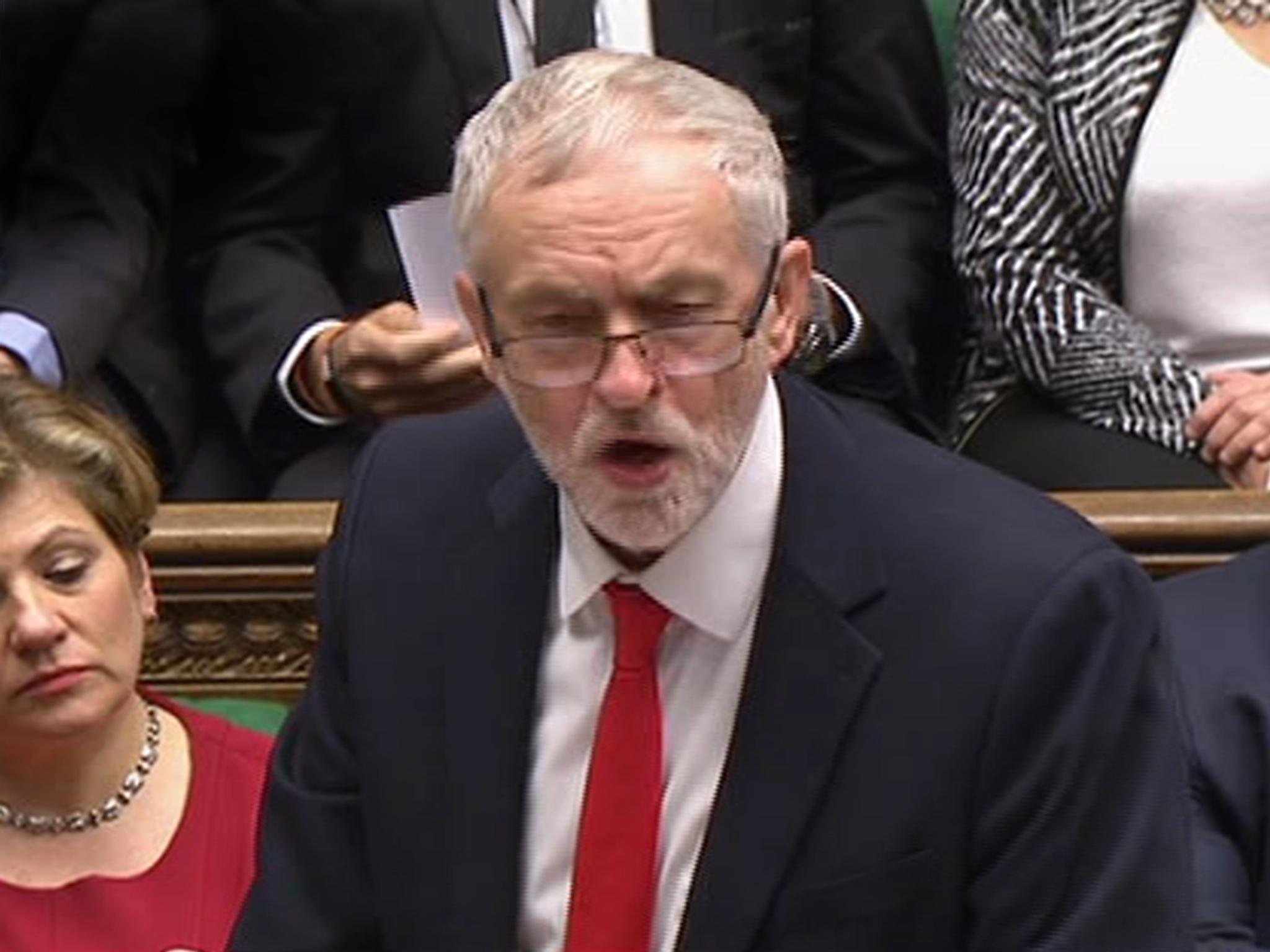The vote on the Brexit Bill could be the beginning of the end of Jeremy Corbyn's leadership
The vote takes place against a background of rising disquiet in the Labour Party over the leader's failure even to try to stop Britain leaving the EU


The result of tonight’s vote is not in doubt. The Prime Minister has the support of the Leader of the Opposition. So the main interest is in the size of the Labour vote against the EU withdrawal Bill, and what it means for Jeremy Corbyn’s future as Labour leader.
The benchmark for tonight’s vote is the vote in December calling on the Government to start the Article 50 process by the end of March. Only 23 Labour MPs voted against that time, but a lot of Labour MPs – 56 of them – didn’t vote. So there will be more this time, but all the same at least two thirds of Labour MPs will vote in favour of the Bill.
Not all of them will be quite as blunt as Margaret Beckett, the former foreign secretary, who said yesterday: “I will vote for Brexit bill though I fear the consequences will be catastrophic.” But all but 10 of them supported Remain in the referendum.
The most united opposition to the Bill will come from the Scottish National Party. Its 54 MPs will probably all vote against it. Even the Liberal Democrats, rebranded as the anti-Brexit party despite their past enthusiasm for referendums, are divided, with at least two of their nine MPs – Norman Lamb and Greg Mulholland – intending to abstain.
But tonight the main event is the Labour rebellion, although that is not really the right word under Jeremy Corbyn’s non-disciplinarian leadership. He has said that MPs cannot remain in the shadow cabinet if they vote against the Bill, but he hasn’t said anything about frontbench posts outside the shadow cabinet. So let us see what happens to Daniel Zeichner, a shadow transport minister, and to Vicky Foxcroft, Jeff Smith and Thangam Debbonaire, who are Labour whips. They are frontbenchers whose job is to persuade fellow Labour MPs to follow the shadow cabinet’s instructions on how to vote, but they intend to disobey themselves.
Nor is tonight’s vote the end of the Labour split story. Clive Lewis, the shadow Business Secretary increasingly mentioned as a possible successor to Corbyn, said last week he will vote against the Bill on the final vote next week if Labour fails to secure its amendments to the Bill.
That means he would have to resign from the shadow cabinet, although Diane Abbott, the shadow Home Secretary who is close to Corbyn, points out that the shadow cabinet has not yet decided its line if – as seems likely – Labour fails to amend the Bill.
Even so, the shadow cabinet, with Corbyn adopting a passive role as leader, is almost certain to ask Labour MPs to support the Bill – or at least not to vote against it – in the final vote next Wednesday.

Lewis’s stand places him precisely on the faultline in the party, voting in favour of the referendum decision, but against the terms of “Tory Brexit”. His announcement is notable against the background of rising disquiet among Corbyn’s supporters about the leader’s European policy. This week alone George Monbiot, the campaigning green journalist, and Derek Hatton, the former Militant leader of Liverpool, both expressed their disappointment with the left-wing leader they had recently and enthusiastically supported.
This is surprising, given that Corbyn made it clear on 24 June last year that he accepted the result of the referendum. It has taken a long time for his supporters to realise what this means. He was re-elected last year by large numbers of people who felt he hadn’t been given a fair chance as leader, and who imagined that there might be a way of influencing the Government to achieve a soft Brexit.
Since then, it has become increasingly clear that the negotiations that will follow the invoking of Article 50 next month will present this country with a narrow range of varieties of hard Brexit, and that Corbyn won’t try very hard to stop it.
After the failure of last year’s challenge to Corbyn’s leadership, it was widely agreed that no one in the Labour Party would want to try that again this year. It would seem that Lewis has other ideas.
Join our commenting forum
Join thought-provoking conversations, follow other Independent readers and see their replies
Comments
Bookmark popover
Removed from bookmarks